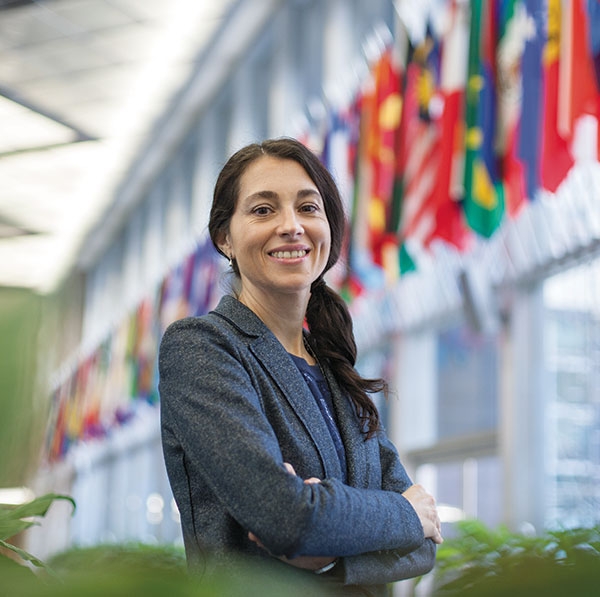A Conversation with Maria Laura Abal MAT ’10 - Staff Translator, U.S. State Department
| by Jason Warburg

Q: A historic policy change by the United States government had a direct impact on your work. What are you doing in connection with the reestablishment of diplomatic relations between the U.S. and Cuba?
A: Our office has translated fact sheets, website content, diplomatic notes and letters, and speeches by Secretary of State Kerry. We are translating official documents, and many of our translation re- questers are in direct contact with their counterparts in Cuba.
Q: Are the conversations you are facilitating more about the basic details of diplomacy (embassies and ambassadors), or about broader policy issues (trade, immigration), or both?
A: The conversations we are facilitating are about basic details of diplomacy, such as the reestablishment of diplomatic relations, the reopening of embassies, and related issues. But the speeches and fact sheets we have translated, many of them available online, touch on a wide range of bilateral issues.
Q: Is this assignment for translation only or are you doing interpreting as well?
A: Our division provides translation services, but we work closely with the interpreters in the interpreting division of our office. We engage in consultations, collaborate, and share information. Thus we ensure consistency and learn from each other, making our jobs more effective and enjoyable.
Q: How have your previous professional experiences prepared you for this assignment?
A: Everything I have ever learned in different professional settings comes into play every time I am faced with an assignment. I lived in Miami for 12 years. Working in the field of translation and interpretation there afforded me a great opportunity to learn about the history and culture of Cuba. On a related note, I was part of a municipal government’s international affairs team in its mayor’s office. In that capacity, I was exposed to a local government’s diplomatic perspective. A big priority was people-to-people exchange initiatives based on sister cities agreements. Being in direct contact with the people benefiting from those efforts all over the world has shaped me in many ways.
In general, my past work experiences have made me aware of the cultural differences we must consider in our line of work. In addition, having a legal-translation degree from my native country of Argentina and legal-translation experience has proven to be a plus in terms of accuracy and subject-matter knowledge.
At MIIS, I learned translation-specific and language-specific techniques I put in practice every day. But most importantly, and having a major impact in my life beyond this assignment, MIIS gave me lifelong friends and colleagues who are always there for me.
Q: How has MIIS prepared you for this assignment?
A: MIIS gave me exposure to the field of translation in international affairs. At MIIS, I also learned translation-specific and language-specific techniques I put in practice every day. But most importantly, and having a major impact in my life beyond this assignment, MIIS gave me lifelong friends and colleagues who are always there for me: Claudia Tebay MACI ’10, Alfonso Ferrer Amich MATI ’10, Carmen Villalba Ruiz MATI ’10 and Anna Martorell Fusté MATI ’10. MIIS made me a part of its community, and I will always be thankful for having that support in my life.
Q: When you were a student, what was your dream job?
A: My current job was my dream job. I feel blessed.
Q: Aside from its historic nature, what are some other challenges of this assignment?
A: Translating diplomatic notes involves following certain time-tested practices, so that helps ensure accuracy and effectiveness. Translating speeches is completely different in that you need to engage the creative side of your brain. In an assignment of this kind, you particularly benefit from brainstorming with colleagues and finding inspiration in the culture of your target audience.
For More Information
Eva Gudbergsdottir
evag@middlebury.edu
831-647-6606
